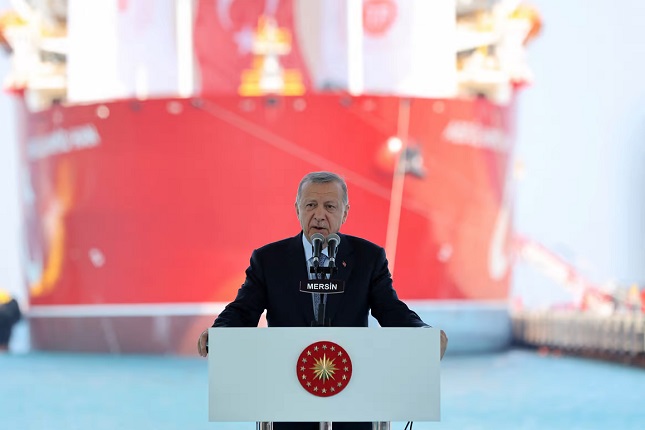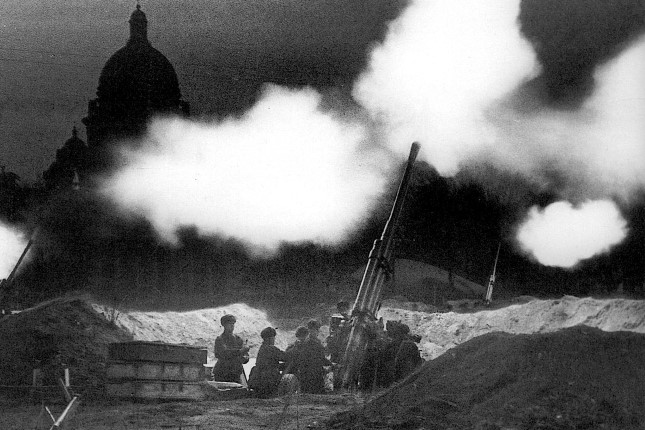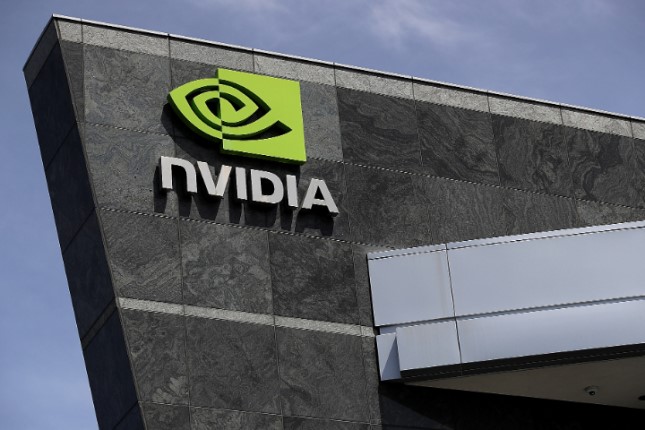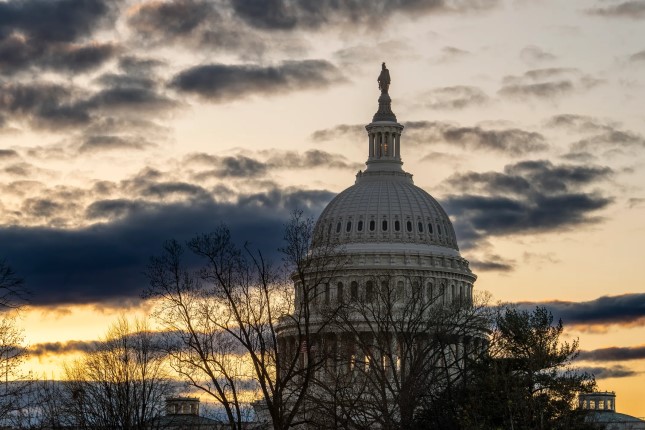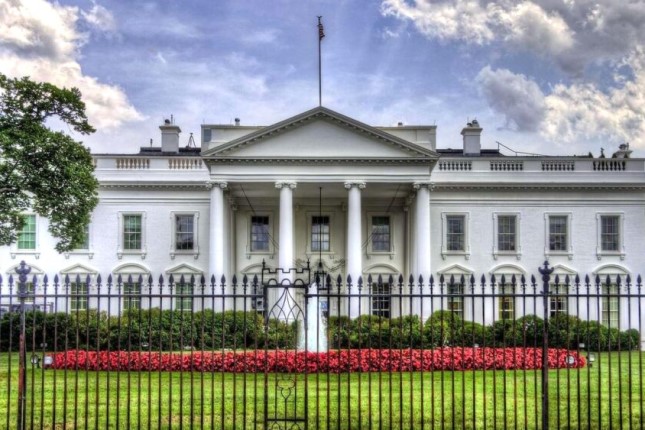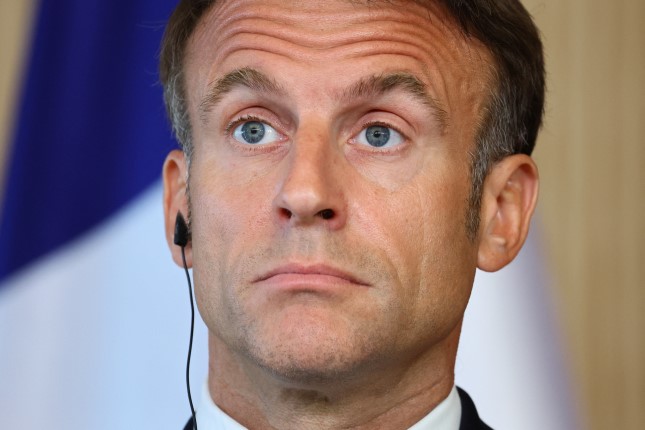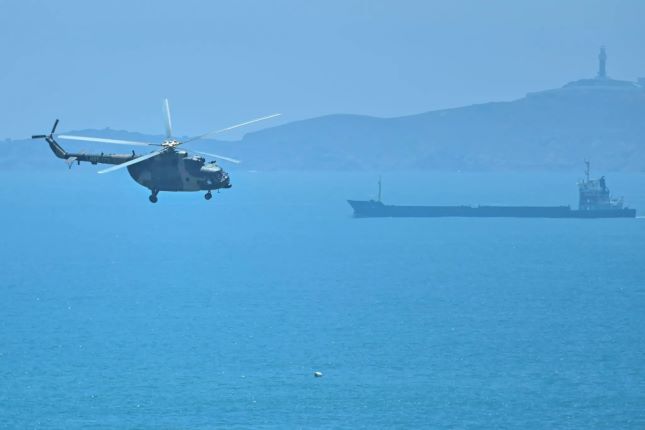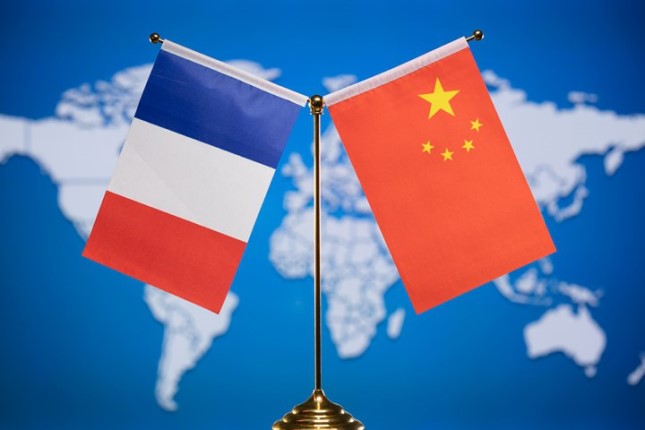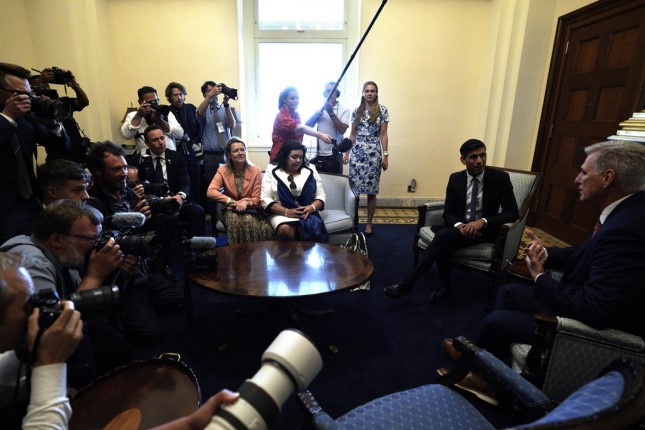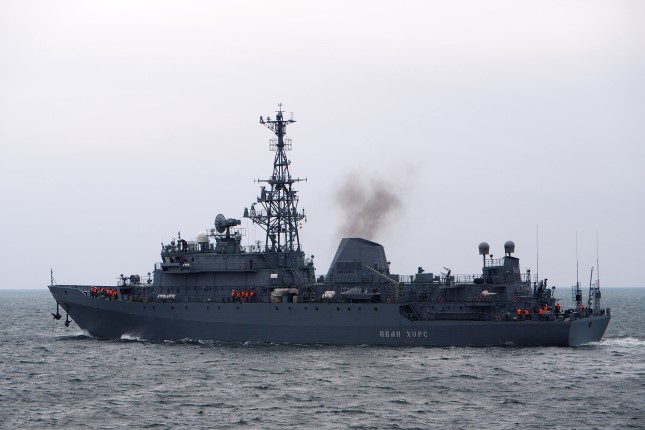Whose side are you really on?
That's the question that's bound to loom large in the mind of Ukrainian President Volodymyr Zelenskyy when he meets his Turkish counterpart Recep Tayyip Erdoğan in Lviv on Thursday. Of all the members of the NATO alliance, Erdoğan is easily the most slippery in terms of his allegiances.
On the one hand, Zelenskyy has grounds to thank the Turkish leader. Erdoğan is trying to present himself as a neutral power broker on the Black Sea, mediating between Russia and Ukraine to allow grain exports to resume out of blockaded ports. A Turkish company — one of whose executives is Erdoğan's son-in-law — is the supplier of the Bayraktar drones that have given Ukrainian forces a decisive boost on the battlefield, to the fury of Russian President Vladimir Putin. Erdoğan has also closed the Black Sea to Russian naval reinforcements through the Bosphorus.
On the other hand, Turkey is facing accusations of being a war profiteer, or rather what sanctions experts call a "black knight" — a nation that helps in the evasion of international embargoes for its own benefit. A surge in Turkey-Russia trade and the adoption of a Russian payment system by Turkish banks since the outbreak of the war has triggered speculation that Ankara has spotted the advantages of giving Moscow a helping hand as its own mismanaged and inflation-crippled economy lurches out of control.
Turkey is “being pro-Ukraine without being anti-Russia,” said former Turkish diplomat Sinan Ülgen, a senior fellow at the Carnegie Europe think tank.
Many Western diplomats, however, are less forgiving about Turkey's double game. "You cannot be with both sides in a war like this. It’s a member of NATO!” complained an envoy from one EU country.
In practice, there's little Western nations can do. There are points of leverage that the U.S. and EU do have over Turkey, but the risks of deploying them are high. Greece is already accusing Turkey of increasingly perilous military saber-rattling with fighter jet incursions over the Aegean Sea and of pushing migrants into its waters. The West also does not want Erdoğan to revert to his veto on Finland and Sweden joining NATO.
Black knight
For now, Brussels and Washington are simply monitoring Ankara's moves.
Trade is increasing between Moscow and Ankara. Turkey’s exports to Russia jumped from $417.3 million in July 2021 to $730 million in July 2022. Imports from Russia jumped from $2.5 billion dollars in July 2021 to $4.4 billion in July 2022. Cutting through the noise created by spikes in oil and gas prices, it is still clear that Russia has now overtaken China as the largest single source of Turkish imports. Russia represented a 17 percent share of imports into Turkey between April and June 2022, compared with a 10 percent share a year earlier.
RUSSIA BECOMES TURKEY'S TOP SUPPLIER OF IMPORTS
In 2022, Russia overtook China as the country providing the greatest share of Turkish imports.
Share of imports from main partners out of Turkish total from April to June 2022, compared with the same period in 2021
TRADE SURGE
The value of trade between Russia and Turkey rose. Exports to Russia surged from a lower level compared with the increase in imports into Turkey.
Trade in goods between Turkey and Russia in dollars, January 2021 to June 2022
European companies are wary of the reputational risk that trading with Russia brings, even when it comes to non-sanctioned goods. Instead, they use Turkey as an export base to resupply Russia. While this may raise ethical questions, it’s not sanctions evasion as such.
But Turkey is operating in a grey zone, experts argue.
If European companies deliberately export sanctioned goods to Turkey, which are then resold to Russia, this can be seen as sanction circumvention, said Jan Dunin-Wasowicz, a lawyer at Hughes Hubbard & Reed who focuses on cross-border compliance and regulatory enforcement. “You cannot knowingly and intentionally participate in an activity that would be illegal if undertaken directly.”
Maria Shagina, a research fellow at the International Institute for Strategic Studies, observed: “While everyone is focusing on China, Turkey is much bolder and more assertive to really balance on that edge of what’s legal and what’s illegal.”
A former senior sanctions official at the U.S. Treasury said Turkey, which benefits from privileged access to the EU market via its virtually tariff-free customs union with Brussels, had developed a reputation as a front line for sanctions evasion. He warned, however, that real evasion was often not captured in formal trade figures, which mostly show just the redirection of above-the-board trade.
In addition to the trade increase, there are also concerns that Turkey is helping Russia get around the financial stranglehold against Moscow. Putin and Erdoğan agreed earlier this month to settle some of their trade in rubles. Five Turkish banks have also adopted the Russian payment system Mir — an alternative to the Western SWIFT payment system, from which most Russian financial institutions have been excluded.
Only fanning the flames of suspicion, Turkey’s Foreign Minister Mevlüt Çavuşoğlu has also said Russian oligarchs are welcome in Turkey. If only to prove the point, the Eclipse, one of the superyachts of Roman Abramovich, former owner of Chelsea Football Club, was spotted last week at the Marmaris Cruise Port, according to the Turkish Anadolu news agency.
Turkey itself dismisses Western concerns and said the new goods' flows simply reflected a shift in trading patterns taken perfectly legally by the private sector.
“We made it clear that we will not allow Türkiye to be a channel for the circumvention or evasion of sanctions,” said a Turkish diplomat. “We want to maintain our ongoing trade with the Russian Federation, but we are not taking any major new steps.”
The official did, however, acknowledge that Ankara was walking a “fine line” and that the country was “doing that very carefully.”
Relationship status? It's complicated
Closer cooperation between Turkey and Russia has clear economic benefits for Erdoğan, who is facing elections next year amid skyrocketing inflation.
Ankara also simply can’t afford to cut ties with Moscow.
The Eclipse, one of former owner of Chelsea Football Club Roman Abramovich's yachts, at the Marmaris Cruise Port on August 12, 2022. Photo: Sabri Kesen / Anadolu Agency / Getty Images.
“Turkey is dependent on Russia in many different ways,” said Yevgeniya Gaber, a Turkey-based nonresident senior fellow for the Atlantic Council think tank, pointing to mass Russian tourism in Turkey and Russian energy flows. Russia provided around a quarter of Turkey's oil imports and almost half of its natural gas needs in 2021, and Moscow also controls Turkey’s nuclear power plant of Akkuyu.
A crisis in Turkish-Russian relations would “immediately backfire and create a lot of problems for Erdoğan ahead of the elections,” said Gaber, who is also a former Ukrainian diplomat.
The political benefits are equally important, as Erdoğan is trying to look abroad to help solve his country’s problems.
Russia and Turkey have been on opposing ends of several conflicts in the region, including in Crimea. But the diplomatic partnership between Putin and Erdoğan has also helped to address some regional conflicts in the region, said the former diplomat Ülgen, pointing to the Astana peace process for Syria and the deal around the disputed region of Nagorno-Karabakh.
What you gonna do?
Western nations have been pressuring Turkey to avoid acting as a circumvention hotspot. Now that the political room for the West to slap new sanctions on Russia has been narrowed, the focus is shifting even more to ensuring that existing sanctions are enforced.
Peter Stano, a spokesperson for the European Commission, said it’s essential that Turkey “does not offer circumventing solutions to Russia,” adding that “we continue to monitor the situation in this regard closely.”
Francesco Giumelli, associate professor in international relations at the University of Groningen in the Netherlands, said it remains to be seen how long the EU and other NATO members will tolerate Erdoğan playing “this double game between having agreements with Putin, but at the same time also being a NATO member and being very close to the U.S. with NATO membership.”
But there is only so much the West can do.
Brussels has some political leverage over Turkey, for example when it comes to visa liberalization for Turkish citizens. Stano pointed to Turkey’s status as a candidate country to join the European Union. But that accession process froze up in all but name by June 2018.
The same goes for the customs union, which the European Commission tried to modernize in 2016, but those talks have stalled given the deteriorating EU-Turkey relationship.
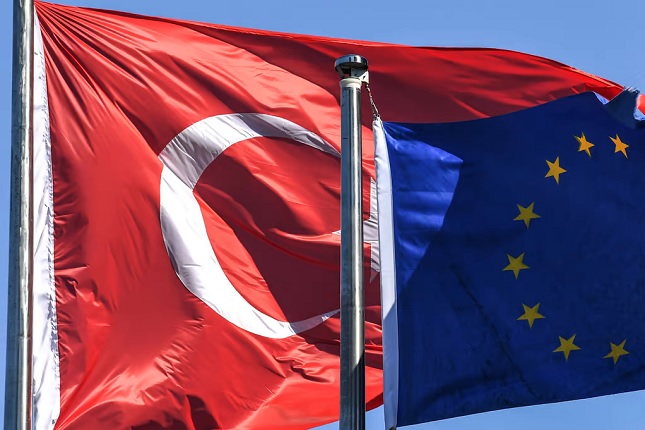
Brussels does have some political leverage over Turkey. Photo: Ozan Kose / AFP / Getty Images.
“Had we been in a different world where the Turkey-EU relationship was strong … the EU might have more authority over Turkey [over sanctions],” said Ülgen. “But now, there is none of that.”
Ülgen stressed there is no scope in the existing customs union for any political influence on Turkey. That would have been different if any modernization of the customs union would need to be politically ratified in Brussels, but that’s not the case.
Washington is firing somewhat sterner warning shots at Ankara not to go too far.
A U.S. official said that if Turkey were to enter into a formal economic partnership with Russia, Washington would consider recommending Western companies withdraw or decrease their economic ties with Ankara.
“We think that Turkey should be a global destination for business and capital, but a closer relationship with Russia will create real risks for Turkey’s integration with the rest of the world,” the official said.
If the West can prove Turkey is evading sanctions, Washington could even go a step further by cutting off Turkey from the dollar via secondary sanctions.
But when it comes to sanctions rules, the interpretation is sometimes just as important as the actual law, said Shagina from the International Institute for Strategic Studies. And that's where the fear of not wanting to alienate Turkey too far comes in.
Erdoğan, for his part, also knows he shouldn’t overstep. The Turkish official said Ankara is aware of the “risks of secondary sanctions,” but also warned about overreach, especially from the U.S. side.
“If Turkish companies are targeted, we will react and this would be counterproductive,” the official said.
Main photo: Closer cooperation between Turkey and Russia has clear economic benefits for President Recep Tayyip Erdoğan © Adem Atlan / AFP / Getty Images.
Source: Politico.
